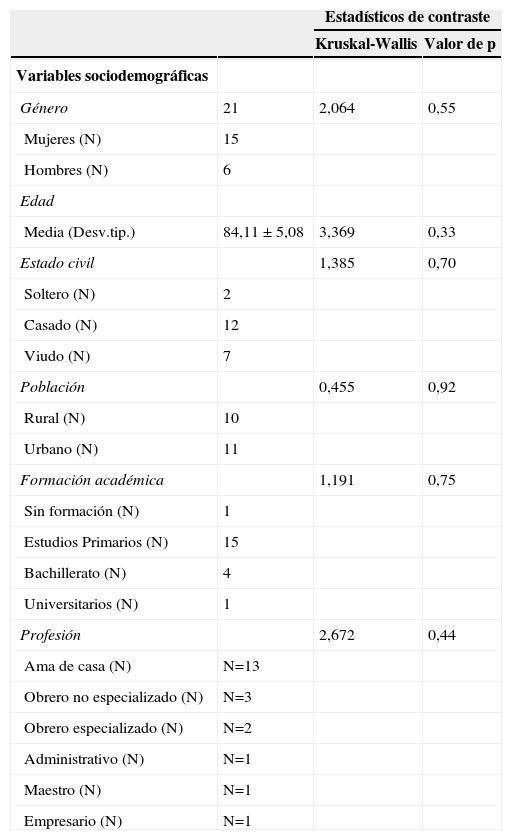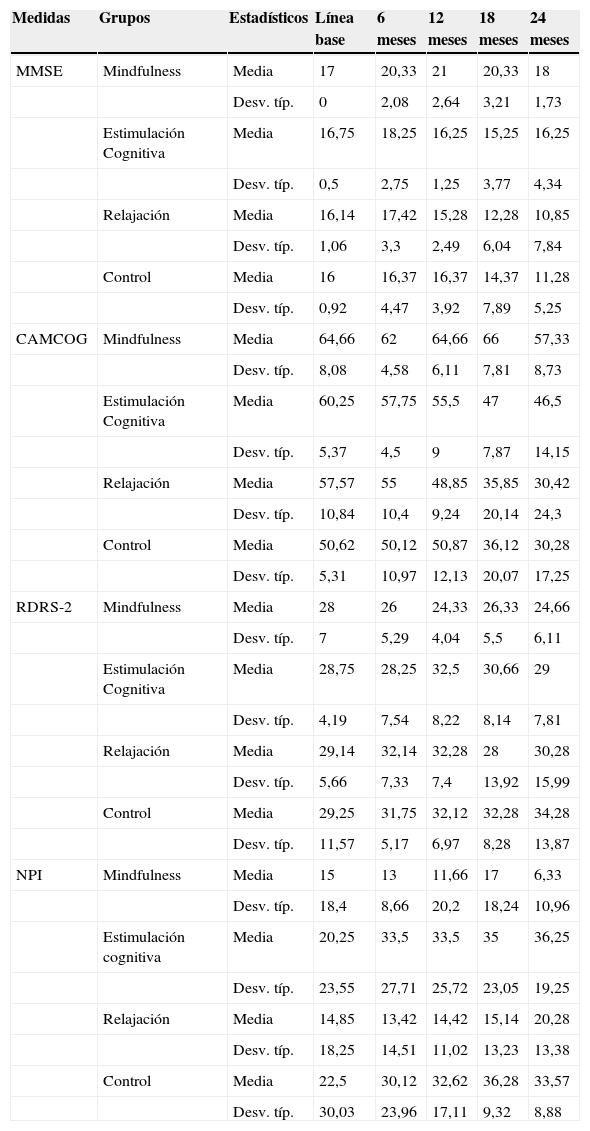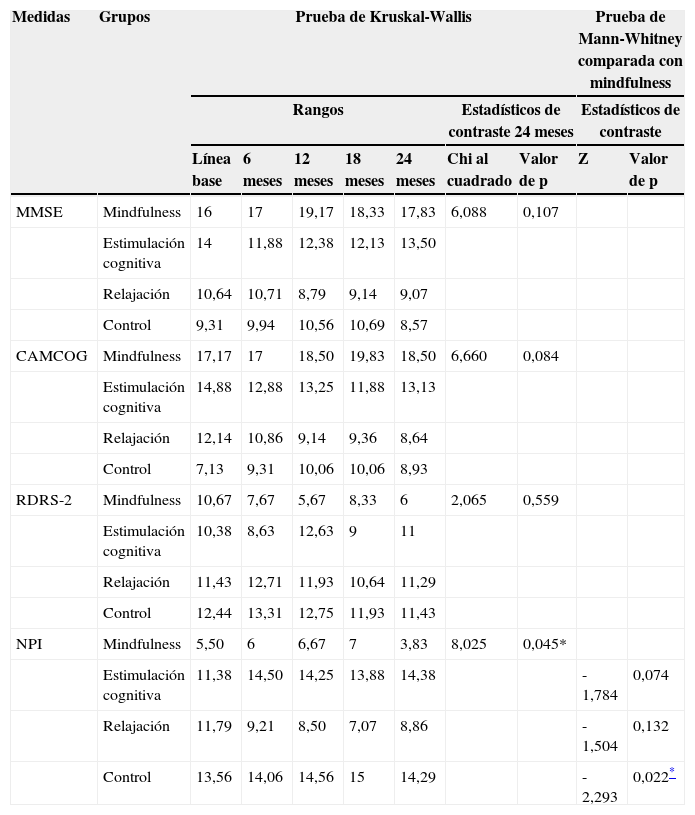Se llevó a cabo un estudio longitudinal para analizar la viabilidad, la seguridad y los efectos de la práctica de mindfulness, relajación y estimulación cognitiva en la evolución clínica de la enfermedad de Alzheimer (EA) con el objetivo de analizar la equivalencia de estos tratamientos.
Material y métodosEn el estudio participaron 168 personas con EA probable en tratamiento con donepezilo. En este artículo se muestra a los 21 participantes en estadio grave que completaron el seguimiento de 24 meses. Se agrupó a los sujetos en 3 grupos experimentales (estimulación cognitiva, relajación y mindfulness) y uno control. Cada grupo desarrolló 3 sesiones semanales con medidas semestrales de seguimiento (cognición: CAMCOG y MMSE; funcionalidad: RDRS-2; psicopatología: NPI). Se realizaron análisis no paramétricos.
ResultadosLas puntuaciones de la función cognitiva y la funcionalidad indicaron que no existían diferencias significativas entre los diferentes grupos. No obstante, los grupos de mindfulness y estimulación cognitiva no perdieron puntuación en la capacidad cognitiva en el análisis intragrupo. En el NPI se produjeron diferencias entre el grupo de mindfulness y el control al final del estudio (p<0,017).
ConclusiónLos datos muestran que el tratamiento de donepezilo con mindfulness o estimulación cognitiva presenta una mejor evolución clínica que el tratamiento farmacológico solo o combinado con relajación. Estos datos indican que se debe seguir trabajando en nuevas alternativas terapéuticas para la EA avanzada y que los tratamientos no farmacológicos deben ser recomendados en la práctica clínica para el control evolutivo de la enfermedad a largo plazo. Ensayos con un mayor número de participantes son necesarios para confirmar los resultados informados en este estudio.
A longitudinal study was conducted in order to analyze the feasibility, safety, and effects of the practice of mindfulness, relaxation and cognitive stimulation on the evolution of Alzheimer's disease, with the aim of testing the equivalence of these interventions.
Material and methodsThere were a total of 168 participants with probable Alzheimer's disease (AD) treated with donepezil. In the present article, the 21 participants with advanced AD who completed a follow-up period of 24 months are presented. The participants were grouped into three experimental groups (mindfulness, relaxation, and cognitive stimulation) and one control group. Each group carried out three weekly sessions with bi-annual follow-up measurements (cognition: CAMCOG and MMSE; functionality: RDRS; psychopathology: NPI). Non-parametric analyses were performed.
ResultsThe cognitive function and functionality scores showed no significant differences between the groups. However, the scores in cognitive function of the mindfulness group and the cognitive stimulation group did not decrease in an intra-group analysis. In NPI, there were significant differences between the mindfulness group and the control group by the end of the study (P<.017).
ConclusionThe data showed that the treatment with donepezil in combination with mindfulness or cognitive stimulation presented a better clinical evolution than the pharmacological treatment alone or combined with relaxation. These data suggest that these therapeutic alternatives should be investigated further, and that the non-pharmacological treatments should be recommended in clinical practice in order to control the evolution of AD in the long term. In order to confirm these findings, a larger study is necessary.
Artículo
Comprando el artículo el PDF del mismo podrá ser descargado
Precio 19,34 €
Comprar ahora










